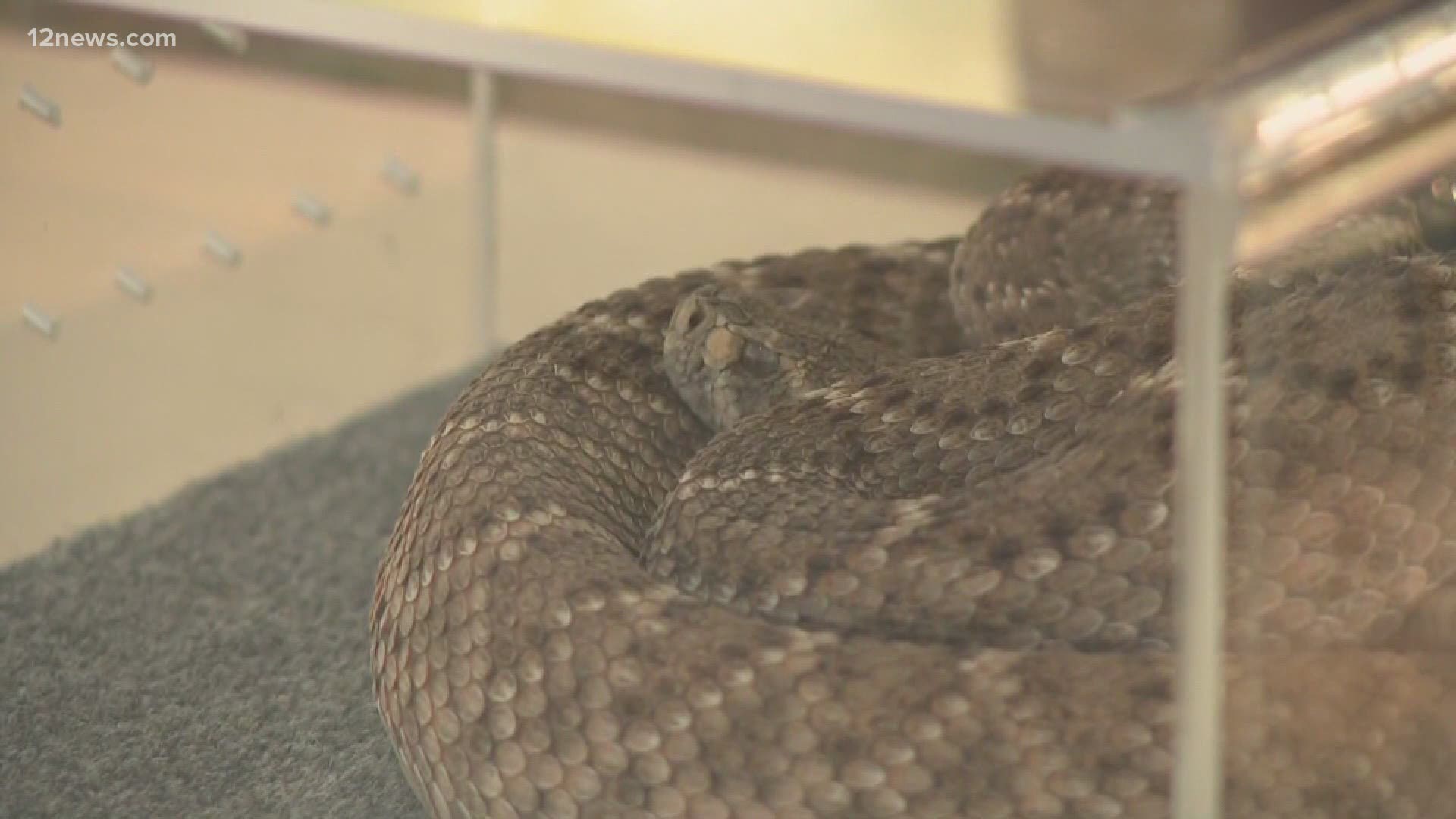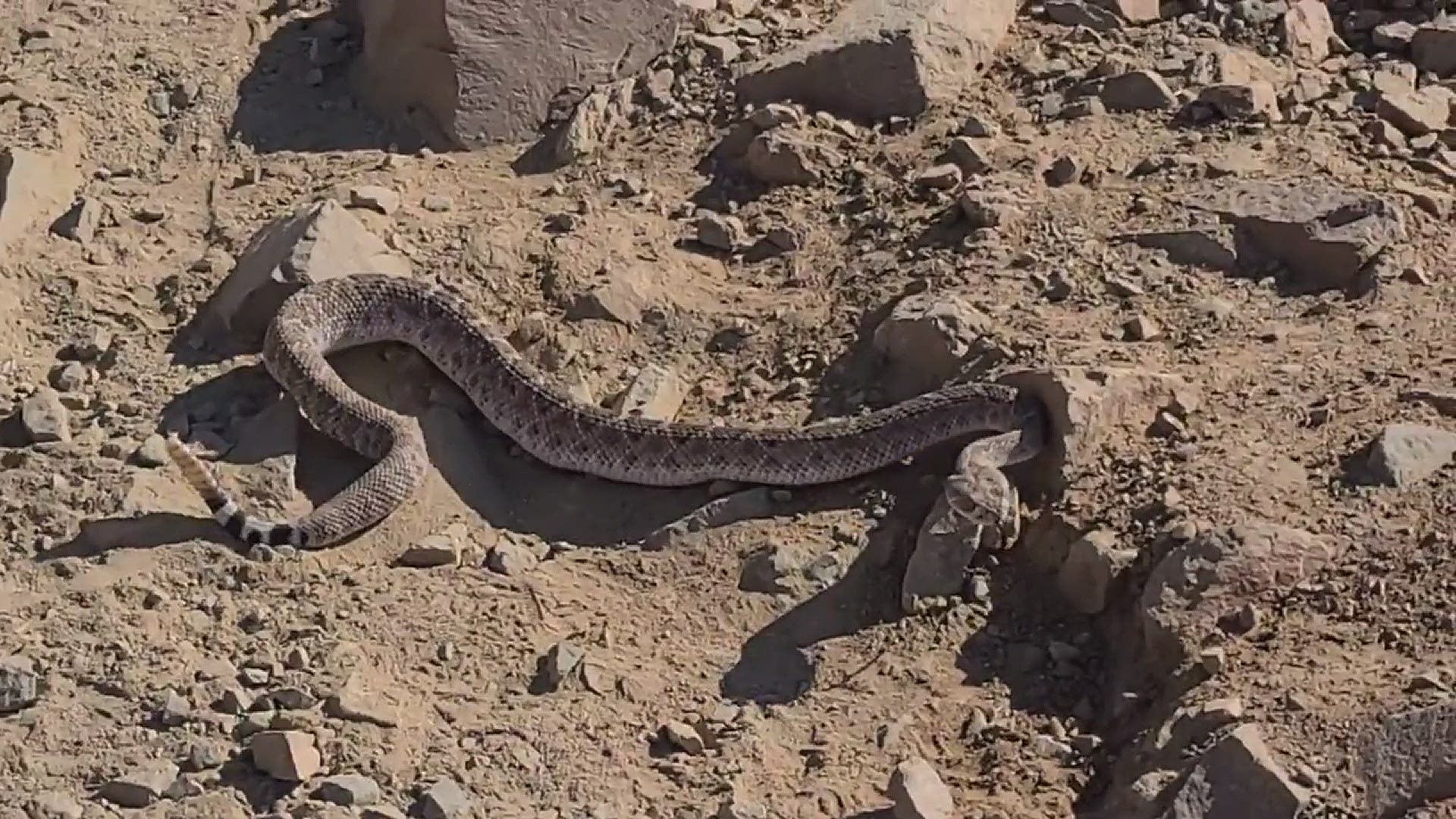PHOENIX — It’s that time of year again: Rattlesnakes are coming out of hibernation and heading for your hiking trail, golf course or even your home.
In order to keep you safe from these snakes, 12 News has compiled some important reminders.
The big overarching safety tip? Be aware of your surroundings. Otherwise, you could step on one of these guys.
Along those same lines, don’t reach anywhere you can’t see, not even for your golf ball. Otherwise, you guessed it, a rattlesnake might bite your hand. And that’s an experience you can do without.
The Arizona Game & Fish Department said in 2020 that April is typically when the most rattlesnake bites are reported in the state.
Russ Johnson, the president of Phoenix Herpetological Sanctuary said about getting bit, “It was kind of like being burned and electrocuted. It was quite a shock. And unfortunately, the fang got stuck in a knuckle," he continued.
"I couldn’t get it off. So, I got a lot of venom. And then as the venom started to pulse through my body, you could tell where it was, because it was like the tide coming in.”
Another important note, rattlesnakes can’t hear. In other words, they won’t know you are there. So don’t surprise them!
And in Arizona, there are a lot of rattlesnakes to surprise. State 48 is home to 13 different types. That’s more than any other state in the country.
Amy Burnett, a spokeswoman with Arizona Game and Fish, said, “All of them are venomous. All of them are very highly dangerous. So, if you are bitten by any one of these 13 you wanna get to the hospital as soon as you can, you wanna remain calm, call 911.”
A couple more tips if you are bit: Take off all your jewelry immediately because of anticipated swelling and immobilize the impacted area.
“You can wash the wound,” Johnson said, but “don’t cut, don’t suck, don’t do anything else because the venom is already past the bite.”
In other words, do not:
- Do NOT apply ice to the bite area.
- Do NOT use an incision of any kind.
- Do NOT use a constriction band or tourniquet.
- Do NOT administer alcohol or drugs.
- Do NOT use electric shock treatment.
Now to a silver lining, rattlesnakes are looking for food, not you, and just want to be left alone. So, stay on trails -- and the fairway -- and you should be OK.



